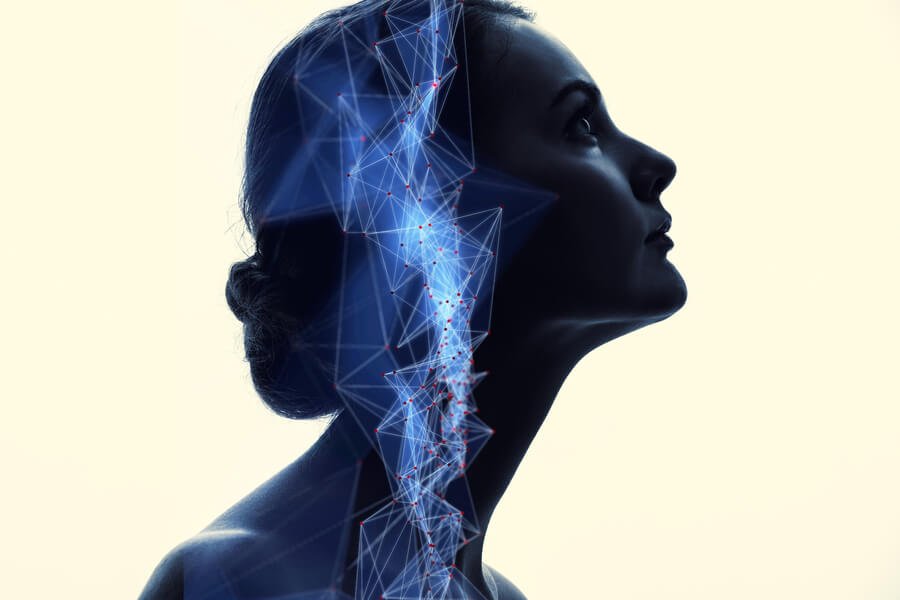
Machine learning can be used to improve mental health
It may seem unlikely that a machine-learning expert would meet a psychologist researcher/clinician. However, MIT’s Rosalind Piard and Massachusetts General Hospital’s Paola Pedrelli share the belief that artificial Intelligence may be able help improve mental health care accessibility.
Pedrelli, who has been a psychologist and a psychiatrist for 15 years, says that “it’s been very very clear that there are a lot of barriers for patients suffering from mental health disorders to accessing care and getting it.”
Pedrelli, an assistant professor of psychology at Harvard Medical School and associate director at Massachusetts General Hospital’s Depression Clinical and Research Program (MGH), is a psychologist. Picard, an MIT professor in media arts sciences, has worked with Pedrelli for more than five decades on a project to create machine-learning algorithms that can help diagnose and monitor symptoms in patients suffering from major depressive disorder.
Machine learning is an AI technology that allows the machine to learn by analyzing a lot of data and displaying good behavior. This can help it become more autonomous in performing tasks. Machine learning can identify meaningful patterns, which may be difficult for humans to see without it. Picard and Pedrelli collect detailed data from participants using wearable devices and smartphones. This includes temperature and skin conductance, heart rate, activity levels and socialization. They can also assess depression and sleep patterns and provide a personal assessment. They are working on machine learning algorithms to process this huge amount of data and make it meaningful. This will allow them to identify when someone is struggling and what may be helpful. Their algorithms are expected to provide physicians and patients with valuable information about each patient’s disease and treatment options.
Picard states, “We are trying to create sophisticated models that can not only learn the commonalities among people but also to identify categories of what is changing in an individual’s life.” We want to give those who desire it the chance to access information that is personalized and evidence-based, and can make a difference in their health.
Machine Learning and Mental Health
Picard joined MIT Media Lab as a researcher in 1991. She published “Affective computing” three years later. This book sparked the creation of a new field. The field of affective computing, which focuses on the development of technologies that can sense, model, and measure emotions, is now a thriving area in research.
Picard and Pedrelli’s work at MIT’s Jameel clinic goes beyond the initial research that focused on whether machine learning could identify participants’ emotions. They are interested in determining if machine learning can predict disorder trajectory, detect changes in behavior, and provide personalized medical care.
Picard and Szymon Fredor, a Picard research scientist in Picard’s affective computing laboratory, started working with Pedrelli back in 2016. After a pilot study, they now are in the fourth year of a five-year, National Institutes of Health-funded study.
The researchers recruited MGH patients with major depression disorder, who had recently received treatment. The study has so far enrolled 48 participants. Participants wear Empatica wristbands E4 for 22 hours daily, 12 weeks. Picard’s company designed these wearable wristbands that can collect biometric data such as electrodermal (skin activity) activity. The apps collect data from their phones, such as location and text messages, and prompt participants to take a biweekly survey on depression.
Patients visit a psychiatrist every week to discuss their depression symptoms.
Picard explains, “We put all the data from the smartphone and wearable into our machine-learning algorithm and we test to see if the machine learning can predict the labels given us by the doctors.” “We are pretty good at predicting these labels right now.”
Empowering users
Researchers face many challenges in developing machine-learning algorithms. However, it is not easy to design a tool that empowers and lifts its users. Picard states, “The real question is now, once you have machine-learning algorithms, how are they going to help people?”
Picard and her colleagues are examining how machine-learning algorithms might present their findings to users through a new device or a smartphone app or a method to notify a family member or doctor of the best way to help the user.
Imagine a technology that tracks whether a person is sleeping less, staying in their home more and having a higher heart rate. These subtle changes could be invisible to the person and their loved ones. These data may be processed by machine-learning algorithms that can map them onto past experiences and those of others. This technology could then encourage an individual to adopt certain behaviors that have helped their well-being or to contact their doctor.
This technology can have negative effects if it isn’t done correctly. An app that warns people that they are heading towards depression could lead to more negative emotions. Picard and Pedrelli have included real users in the development process to make sure that the tool is helpful, not harmful.
A tool that can tell someone if their sleep data has changed and your data relates to social activity and you haven’t had time with your friends in a while, could be very effective. Picard suggests that you look for ways to improve those factors. Picard says that the team also prioritizes data privacy and informed consent.
Picard states that machine-learning algorithms and artificial intelligence can find patterns and make connections in large data sets that humans aren’t as skilled at. Picard says, “I believe there is a compelling case for technology that helps people become smarter about themselves.”

